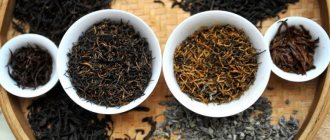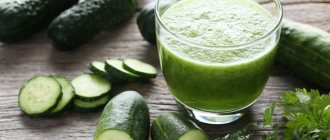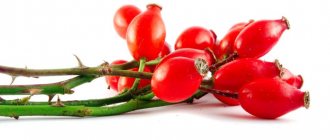Doctors often recommend that people who have low blood pressure drink green tea with lemon and sugar. After such a drink, the indicators become higher. All this is explained by the presence of substances such as caffeine and tannin in its composition. Thanks to them, blood circulation increases and the tone of the vascular walls increases. If the tea is also sweet, then glucose has an invigorating effect on the brain. In combination, all these properties help hypotensive patients feel much better, which cannot be said about hypertensive patients.
But the effect of green tea on indicators is short-lived. The body quickly removes it naturally.
Positive properties of this drink:
- kakhetin, which is contained in it, has an antioxidant effect, in addition, it strengthens blood vessels;
- tannin affects the body's immune system, strengthening it, especially stimulating resistance to infections;
- Green tea also contains quite a lot of vitamin C.
Of course, every drink, even the most harmless one at first glance, can cause harm to the body if drunk in excessive quantities. Green tea is one of these. Therefore, if you use it a lot, you may experience increased heart rate, sleep disturbances, and high blood pressure. Varicose veins of the extremities may also develop. But is it possible to drink green tea for high blood pressure?
Alkaloids cause an increase in tonometer readings. These substances are simple caffeine. In this case, it has various components. These are xanthine, nofilin, etc. All of them act on the body in such a way that blood pressure levels increase. In some cases, green tea abuse worsens chronic pathologies, including hypertension.
Green tea increases blood pressure, but at the same time, this drink can improve the patency of coronary and renal arteries.
Impact of the drink
Although it is noted that it contains caffeine, not everyone experiences increased blood pressure after drinking tea. Everyone's reactions to alkaloids may be different. It all depends on the individual structure of the walls of blood vessels, namely, on the number of their receptors. Some people's receptors are more influenced by cahetins, while others are more affected by caffeine.
Does green tea increase or decrease blood pressure? Scientists have found that there are many more people susceptible to cahetin. Consequently, there are fewer people whose indicator increases after drinking tea. In order to determine how green tea affects blood pressure, you should measure it before drinking tea, but you should not be nervous about it. A person should be calm, which means it should not happen after physical activity, walking, and also not after eating.
Next, the indicators are measured, and it is better to write them down. After this, you need to drink a cup of green tea, but it should be without any additions. It is better that there is no honey, sugar, and do not fill the drink with sweets.
You need to wait 15 minutes and check your blood pressure again. But during the waiting period, you should also not be too active, it is better to sit quietly. The results are compared. And after that you can evaluate: green tea increases blood pressure or reduces blood pressure.
If blood pressure has increased by no more than 10-15 units mm Hg. Art., then there is nothing to worry about. This means that the body normally perceives the alkaloids contained in green tea.
And if after drinking tea a person’s indicators increase by more than 20 units, then this drink should be taken more seriously. In a healthy person, blood pressure levels return to normal very quickly. The same cannot be said about hypertensive patients, for whom excessive tea consumption can negatively affect their health.
What are the benefits of the drink
Before answering the question whether a drink made from green tea leaves increases or decreases blood pressure, you need to talk about the benefits of the product and its properties:
- reduction of swelling, removal of excess fluid from the body;
- restoration of damaged tissues, launching cell rejuvenation processes;
- increasing the body's immune strength and resistance to infections;
- reducing the level of inflammation during colds and chronic infectious diseases;
- preventing the formation of cancer cells.
Tea has a cleansing effect on the body - with regular consumption of the drink, toxins, waste and harmful substances are eliminated due to the content of a large number of natural antioxidants. The drink helps rejuvenate cells and reduce the negative impact of free radicals on the body. The removal of excess fluid from tissues occurs due to a pronounced diuretic effect.
It can be used if you are prone to edema, in the hot season, during pregnancy in the recommended quantities, since the last trimesters of bearing a child occur against a background of constant edema. Strong green tea helps cope with colds - it increases sweating, increases the body's resistance, removes toxins and reduces the manifestations of infectious diseases (fever, pain, increased temperature)
It is impossible not to mention the beneficial effects of the drink on the nervous system.
As a preventative measure, regular tea drinking prevents infection by viruses and bacteria, especially in autumn and winter. Thanks to regular consumption of green tea, the body becomes less prone to stress and depression, thanks to the natural antioxidant substances contained in the leaves. The drink is recommended for people with insomnia and sleep disorders - drinking a cup of warm green tea before bed helps to quickly fall asleep, deeper and more sound sleep.
During a night's rest, the body recovers, the nervous system rests, tension goes away, so using the drink as a cure for insomnia and a tendency to stress is justified. Many studies have proven that tea leaves contain substances that block the proliferation of cancer cells. Immunity increases, metabolic processes in cells are normalized, and the risk of developing malignant tumors is reduced.
Rules for drinking the drink for hypertensive patients
Doctors note that hypertensive patients need to consume about 1.3 liters of fluid per day. But it is also important to take into account liquid soups and juices. Hypertensive patients are not recommended to drink more than 2 cups of tea per day.
Many people know that bergamot has the property of lowering blood pressure, but in store-bought tea the taste of bergamot is achieved due to the flavorings in the composition. Therefore, you should not expect your blood pressure to drop due to this ingredient.
It is also recommended to buy only large-leaf tea, and rinse the leaves in warm water before drinking. In this way, some alkaloids are already neutralized. Also, the effect of caffeine can be mitigated with milk, that is, you can drink tea with it.
Of course, if a person has hypertension, and the blood pressure is currently elevated, then it is better not to drink tea. This can have a detrimental effect on your general condition. Especially at night, you should not drink the drink, as insomnia and excessive excitability may occur. At the same time, hypotensive people with low blood pressure need a cup of strong drink with sugar or honey.
What are some misconceptions about green tea for hypertension?
A refreshing, invigorating drink came to us from the East. The Chinese and Japanese praise its amazing properties and consume it several times a day in various variations. The main myth about green tea: hypertension goes away forever with regular drinking of the drink. Another story claims that it calms the nervous system. And finally, the third legend: tea reduces blood pressure.
In Japan, the tea cult is so developed that the country uses special green tea therapy against hypertension at the state level. You will probably be surprised that this is a fiction, because the Japanese are legendary long-livers. It turns out that other factors influence the life expectancy of the Japanese, and tea has nothing to do with it. This includes ecology, healthy nutrition, a high level of medicine, excellent working and living conditions. But it is more pleasant for Eastern people to attribute all the glory to miracle tea.
Marketing advertising campaigns also give rise to mixed feelings. Marketers don’t even plan to understand the true features of green tea. Some claim a calming effect, others claim vigor and a surge of energy, which is categorically unacceptable for people with hypertension. So who should we believe?
in
the Club of Former Hypertensive Patients
has long known that the healthiest tea is black tea with thyme!
How to brew?
In order for the drink to be tasty and healthy, you need to brew it for a certain amount of time. If this time is less than 3 minutes, then the increase in pressure will be insignificant. If this time lasts 4-10 minutes, then such a drink can increase blood pressure by more than 20 mm Hg. Art. This is very dangerous for hypertensive patients at stages 2 and 3 of the disease.
Tea that has been steeped for more than 10 minutes is generally not recommended for consumption. It no longer contains useful microelements and vitamins, and there is a lot of caffeine. Therefore, if a person finishes a drink brewed in the morning, then it will not be beneficial.
Scientists have proven that 2-3 cups of the drink throughout the day, brewed in less than 3 minutes, will help keep blood pressure levels normal.
Types of varieties
Green tea was first produced in China. Today this country produces only elite varieties:
- Xihu Longjing. Hand pressed. Leaves a sweet aftertaste and the aroma is associated with an orchid. The color of the drink is yellow.
- Gunpowder. The curled leaves resemble pellets that “explode” during brewing. Good in combination with mint - just what hypertensive patients need.
- Bilochun. Tea made from tiny young tea leaves collected in early spring. It has a fruity taste and a pronounced floral aroma.
- Yun Woo. The drink is not for everyone due to its astringency and bitter aftertaste.
- Huangshan Maofeng. Tea leaves are newly opened leaves and buds. When brewed, they weaken the floral aroma. They have a nutty flavor.
In Japan, 100% of the tea market is occupied by green varieties. The most popular:
- Sentya. Combines sweet and bitter notes that pair well with Japanese cuisine.
- Rekutya. A variety suitable for daily use. A light citrus aroma complements the berry flavor notes.
- Gyokuro. To grow this type of tea, the bushes are artificially shaded. This creates favorable conditions for the accumulation of large amounts of tannin in the leaves. Namely, this substance strengthens blood vessels, helping to reduce blood pressure.
Georgian green tea is less popular, but in terms of taste it is ready to compete with Chinese and Japanese varieties. What does it cost just to collect “Bouquet of Georgia” and “Extra”. Varieties numbered 115 and 125 are more suitable for daily consumption.
Tea with lemon
Hot green tea with lemon is a pleasant and healthy drink. It is one of the traditional medicines for hypertension. It is effective to add both lemon pulp and zest. Green tea increases blood pressure, so it should not be strong.
Everything is explained by the properties of the drink to strengthen blood vessels (in moderation). Lemon is also very rich in vitamins and microelements. These are vitamins C, P, D, A, group B (1, 2, 5, 6, 9), and also fluorine, phosphorus, magnesium, sodium, potassium. In view of this, lemon also improves the condition of blood vessels. This composition of substances will help reduce the amount of cholesterol and reduce the level of blood viscosity. These properties will help lower blood pressure, as this improves the functioning of the cardiovascular system. In addition, tea with lemon increases the body's defenses.
How does it affect blood pressure, heart and blood vessels?
The opinion that green tea lowers blood pressure cannot be called truly true or false - it all depends on the degree of development of hypertension, the general condition of the body, the quality of the heart and blood vessels, and even on the age and weight of the person. Doctors recommend drinking the drink for older people, as it raises the tone of blood vessels, strengthens their walls, and restores the elasticity and condition of capillaries.
The benefits for the heart and blood vessels are explained by the ability to remove free radicals from cells, normalize metabolism and eliminate stagnation of excess moisture in the body. Thanks to this action, body weight decreases, signs of obesity are eliminated and blood pressure actually decreases. It is precisely in hypertensive patients that cholesterol levels in the blood are increased, since the development of the disease is promoted by excess weight and a tendency to obesity - green tea helps solve these problems, therefore it is indicated for high blood pressure.
Hypertensive people with increased body weight are also prone to developing diabetes mellitus because they have high cholesterol, their blood vessels are fragile and brittle, and plaques and blood clots form in them. Green tea reduces the impact of negative factors on the body, helps cleanse blood vessels and normalize metabolism. Thanks to this effect, the risk of developing diabetes, heart and vascular diseases, including heart attack and stroke, is reduced.
Whether a drink lowers blood pressure depends on concomitant diseases and the presence of bad habits. Thus, hypertensive smokers increase the risk of developing cardiovascular pathologies significantly. Drinking green tea helps to quickly remove harmful substances contained in tobacco from the body, making it easier to give up the bad habit and cleanse blood vessels. Against the background of this effect, blood pressure does decrease, but with prolonged use of green tea.
Black
The drink contains caffeine, which is several times more powerful than natural coffee. Therefore, drinking tea with high blood pressure is not recommended for lovers of strong, freshly brewed black drinks. High blood pressure levels are not a reason to completely give up black tea; you can drink it, but in limited quantities and weakly brewed, for no longer than 2-3 minutes.
For hypotensive people, regular consumption of the tea drink is not dangerous; their performance increases, fatigue decreases, and headaches go away. In general, black tea is very good for health - it improves immunity, reduces weight, fights the formation of cholesterol plaques in blood vessels, and helps improve digestion. Black tea contains caffeine and catechins - these substances are perceived by the human body in different ways.
In some people, the receptors primarily respond to the intake of caffeine, as a result of which the blood vessels dilate and the pressure increases by 8–10 mmHg. In the case of a primary reaction to catechins, blood pressure values, on the contrary, decrease by several points. Therefore, it is impossible to say for sure whether black tea increases or decreases blood pressure. It all depends on the individual characteristics of the body, the type of tea and the brewing method.
To increase the beneficial properties of the drink, honey, lemon, milk, herbs and rose hips, viburnum, and rowan are added to it. Tea with mint and lemon balm has calming properties; it lowers blood pressure, improves sleep, and relieves stress and anxiety. It is useful for hypotensive patients to drink the drink 3-4 times a day, brewed for 5-8 minutes.
No ads 1
How to choose good tea
To better assess the quality of the tea leaves, buy them in bulk. In doing so, pay attention to:
- Color, which largely determines the quality of green tea. It should be green, but shades can vary from dull to dark olive. In China, the best varieties have a pistachio color and a slight sheen of silver or gold. Do not buy tea that is too dark, because this is a sign of a violation of the production technology. This will affect not only the taste, but also the medicinal properties of the drink.
- Collection period. Find out when the tea leaves were harvested. If in the spring, then you can enjoy a soft taste with a floral, fruity or nutty aftertaste. Autumn leaves are astringent and have a lot of bitterness. Don't buy last year's tea. It can be distinguished by a large number of broken tea leaves from frequent transportation and carrying from place to place.
- Humidity. For high-quality tea it varies between 3-6%. If the indicator is higher, the shelf life of the product decreases. At 20%, the leaves can no longer be used to make a drink, because mold will form on them. This may be hazardous to your health. Dried tea leaves are also not suitable. They will turn to dust when brewing and ruin the taste.
If you decide to buy packaged tea, then the main criteria for choosing will be:
- Integrity of the package and box.
- Availability of a trademark and information about the country of origin and the date of harvest of the tea leaves. The packaging must also indicate: net weight, shelf life and storage conditions.
- Marking. Options: numbered from 1 to 7 (in order of decreasing quality). But the best tea is not designated No. 1, but “Extra.”
Attention! On the shelves you can see flavored green teas next to hibiscus. They are usually beautifully packaged and cost little. But even if the temptation is high, refrain from such a purchase. A good variety does not need flavorings: it already smells pleasant. You will not get any benefit from the drink.









